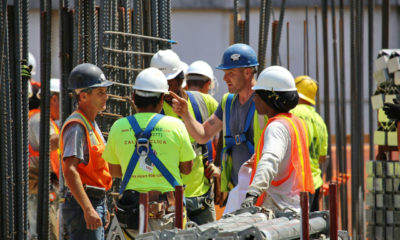- Nigeria’s Rising Debt Servicing Cost Unsettles Investors –Report
The cost of servicing government debt in Nigeria is dampening foreign investors’ appetite to inject capital into the country.
Financial Times reported on Monday that many of them continued to be willing lenders, despite the signs that their money might not always have been put to the most productive use.
Increasingly, however, analysts are raising questions over the proceeds of bond sales — and whether the public finances of the country, according to the International Monetary Fund, are as sustainable as they appear.
“They have borrowed quite a bit, but where is the money being spent?” asks Andrew Roche, Managing Partner of Finexem, a Paris-based financial consulting firm.
He expressed worry that the government had been using borrowed cash to patch up holes in budgets, rather than investing in infrastructure or industry, or in efforts to diversify the economy from a heavy dependence on oil.
In a world of cheap and abundant money, Nigeria has been among the big beneficiaries of a global hunt for yield. The country sold its sixth Eurobond last November, raising $2.9bn in maturities of seven, 12 and 30 years in an issue that was more than three times oversubscribed.
On April 25, the government raised N100bn ($326m at the official rate) in an auction that included a debut 30-year local currency bond that was four times oversubscribed.
Yet, Roche said some investors might have overlooked some worrying metrics.
In a presentation to investors in Washington last month, the Minister of Finance, Zainab Ahmed, stressed that Nigeria’s government debt, while it had risen in recent years, was still equal to just 19 per cent of gross domestic product in 2018.
That is well below the average for emerging markets of just under 50 per cent of GDP, according to the Institute of International Finance. But the same presentation showed that the amount spent on servicing government debt, while it had fallen as a share of the government’s gross revenue collection, had risen to an alarming two-thirds of revenues retained by the Federal Government after it had distributed funds to the states, as mandated by Nigeria’s federal system.
Ravi Bhatia, a sovereign analyst at S&P Global Ratings, said the problem was best understood the other way round.
“The issue is not so much that interest payments are high. The main problem is that federal revenues as a share of GDP are just very low. They are literally reliant on oil and little else,” he said.
Indeed, IMF data showed that Nigeria’s general government revenues were equal to just 5.7 per cent of GDP last year, far below the average of 22 per cent of GDP for the other 44 sub-Saharan countries for which the IMF collects data.
In its latest report on Nigeria published last month, the IMF also emphasised the need for “revenue-based consolidation” to lower the ratio of interest payments to revenue and said “non-oil revenue mobilisation” should be the top priority in “an urgent reform package.”

 Forex3 weeks ago
Forex3 weeks ago


 Naira2 weeks ago
Naira2 weeks ago
 Billionaire Watch2 weeks ago
Billionaire Watch2 weeks ago




 Naira3 weeks ago
Naira3 weeks ago




 Naira2 weeks ago
Naira2 weeks ago




 Naira1 week ago
Naira1 week ago




 Naira4 weeks ago
Naira4 weeks ago




 Naira4 weeks ago
Naira4 weeks ago






















